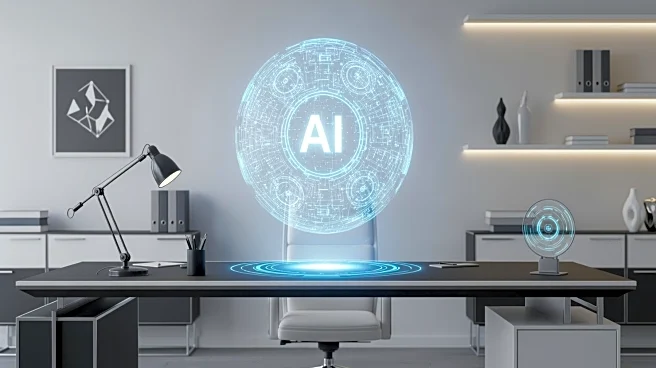What's Happening?
Companies are increasingly adopting AI personas of their CEOs to enhance accessibility and streamline operations. Alex Alonso, Chief Data and Analytics Officer at the Society for Human Resource Management,
developed an AI chatbot of CEO Johnny Taylor Jr. using emails and public appearances. This AI CEO provides feedback on work ideas, encouraging innovative problem-solving approaches. Klarna has launched a hotline featuring an AI version of CEO Sebastian Siemiatkowski, receiving over 3,000 calls on various topics. The technology allows executives to be available anytime and speak multiple languages, reducing travel needs and preserving leadership vision during transitions.
Why It's Important?
The integration of AI CEOs represents a significant shift in corporate management, potentially impacting workforce dynamics and executive roles. While AI avatars are designed to complement rather than replace human leaders, their adoption raises concerns about job security, particularly in white-collar professions. The technology offers potential benefits, such as increased accessibility and efficiency, but also poses challenges related to data privacy and regulatory compliance. As AI continues to evolve, businesses must navigate these complexities to leverage AI's advantages while safeguarding employee interests.
What's Next?
Companies are exploring further applications of AI technology, such as developing AI-generated 'buddies' to assist new employees. The demand for AI agents is growing, with 79% of senior executives already adopting them in their businesses. As AI becomes more integrated into corporate structures, ongoing discussions about its impact on employment and the creation of new job types will continue. Businesses must balance innovation with ethical considerations and regulatory frameworks to ensure responsible AI deployment.
Beyond the Headlines
The rise of AI CEOs highlights broader ethical and cultural implications, including the potential for AI to reshape traditional leadership models and influence corporate culture. As AI technology advances, companies must address the ethical dimensions of AI use, ensuring transparency and accountability in decision-making processes. The long-term impact on leadership styles and employee engagement remains to be seen, as organizations adapt to the evolving landscape of AI-driven management.








